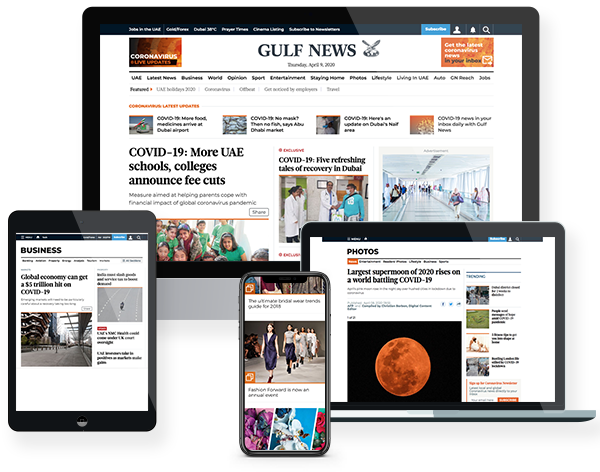
On Thursday March 21, 2024, the US Department of Justice (DOJ) made a significant move. It filed a lawsuit against Apple Computer Inc, the California-based tech giant, alleging “monopolistic” practices by the company to kill competition.
Joining forces with attorney generals from 15 states and the District of Columbia (D.C.), the suit argues that Apple’s tight control over its smartphone operating system (iOS) drives up costs for consumers and stifles competition from developers working on alternative platforms. The only other dominant operating system that runs digital devices sold across the world is Android.
It's a coder-versus-lawyer talk. Yet it signals the growing global scrutiny of the US tech firm's ways of doing business, with far-reaching implications.
Here’s what you need to know, and how it may affect Apple users:
What’s the US government’s beef against Apple?
US Attorney General Merrick Garland emphasised the importance of upholding “antitrust” (pro competition) laws to prevent companies from imposing unfair burdens on consumers.
The complaint alleges that Apple's monopoly extends beyond smartphones to encompass web browsers, video communication, news subscriptions, entertainment, automotive services, advertising, location services, and more.
Assistant Attorney General Jonathan Kanter highlighted Apple's history of deploying restrictive measures to stifle competition.
The command comes from the top: President Joe Biden has called for the Justice Department and the Federal Trade Commission to vigorously enforce US antitrust laws.
The lawsuit outlines several key allegations:
- Apple’s restrictions impede the development of what the DOJ terms “super apps”, hindering consumers’ ability to seamlessly transition between smartphone platforms.
- The company blocks the creation of the so-called “cloud-streaming” apps for high-quality gaming experiences without additional hardware costs.
- Development of cross-platform messaging apps is hampered, locking users into the “Apple ecosystem” by limiting communication features between iPhone and non-iPhone users.
What is a monopoly?
By definition, monopoly is the exclusive possession or control of the supply of or trade in a commodity or service.
If a company, person, or state has a monopoly on something such as an industry, they have complete control over it, so that it is impossible for others to become involved in it.
What are alleged examples of Apple’s monopolistic practices cited in the lawsuit?
Critics of Apple, led by US Attorney General Merrick Garland (chief government lawyer) pointed out the tech giant's significant market dominance, demands greater accountability.
Following are oft-cited as Apple's anti-competitive tactics:
- Deploying restrictive measures to stifle competition, a tactic it uses in other markets (outside the US).
- Blocking mobile cloud streaming services that allow them to enjoy products outside the company's ecosystem
- Using “exclusionary” methods
- Disrupting/blocking apps that could make it easier for consumers to switch smartphones
- Degrading the quality of alternative messaging apps
- Lack of accountability
In a nutshell, the lawsuit suggests that Apple’s success stems more from stifling competition rather from genuine innovation.
How much is Apple’s revenue and market share of smartphones and PCs?
The company recorded $383 billion in total revenue in 2023, and racked up nearly $97 billion in net income. Apple gained market share in some countries, where rivals saw steeper declines, even as both the smartphone and PC markets were in retreat.

What is Apple’s response?
Apple promptly refuted the allegations. Its lawyers argue against government interference in its design choices and asserting its commitment to delivering superior user experiences.
The company contended that it refrained from developing cross-platform messaging compatible with non-iPhone devices to maintain its high standards of user experience.
What is the anti-trust suit all about?
The lawsuit against Apple is part of President Joe Biden’s broader campaign to address antitrust issues within the tech industry, following similar actions against Google, Meta (formerly Facebook), and Amazon.
This set of laws controls the creation, use and abuse of market power. “Antitrust” is the word interchangeably used with “competition law”.
Why then is it called “antitrust”?
Originally, these laws were established to check the abuses threatened or imposed by the immense “trusts” that emerged in the late 19th Century.

What are the innovations Apple is known for?
Some of Apple's innovations include
- iOS
- AI chips (i.e. M3 Max processor)
- Siri
- Apple Watch
- Apple Pay
- iPad
- Apple TV
- iPhone
- iTunes
- Apple computer|Mac
Were there similar cases against Apple in the past?
Yes. This lawsuit already marks the third attempt by state attorney generals to challenge Apple’s practices. It is the most expansive in scope, so far.
What happens next?
The move is seen as an escalation of antitrust efforts under the Biden Administration, and could have significant implications for other tech giants.Assistant Attorney General Jonathan Kanter highlighted Apple's history of deploying restrictive measures to stifle competition. The lawsuit demands greater accountability and seeks to prevent similar tactics in other markets. President Joe Biden has called for the Justice Department and the Federal Trade Commission to vigorously enforce antitrust statutes.
What are the states that sued Apple?
- Arizona,
- Connecticut,
- California,
- District of Columbia,
- Maine
- Michigan
- Minnesota
- New Hampshire,
- New Jersey,
- New York,
- North Dakota,
- Oklahoma,
- Oregon,
- Tennessee,
- Vermont, and
- Wisconsin.
How will it affect consumers?
It’s too early to say.
The lawsuit forces the legal fraternity to go into the realm of the spaghetti of codes and the intellectual property behind them that powers the so-called “big tech” – FAANG (Facebook, Apple, Alphabet, Netflix, Google) – that have disrupted entire industries.
Critics such as Adam Kovacevich of the Chamber of Progress argue that Apple’s “curated ecosystem” and proprietary (as opposed to open-sourced) is precisely what attracts consumers, enhancing security, greater control (instead of free-for-all) and ease of use.
This lawsuit follows a recent $2 billion fine imposed on Apple by the European Union for anti-competitive behaviour in music-streaming services, signalling growing global scrutiny of the company's practices.
signalling growing global scrutiny of the company's practices.










